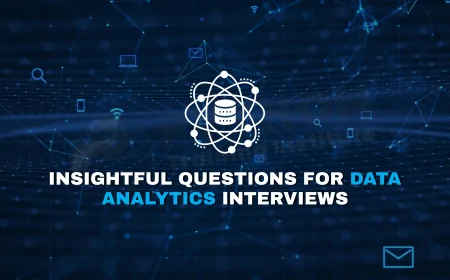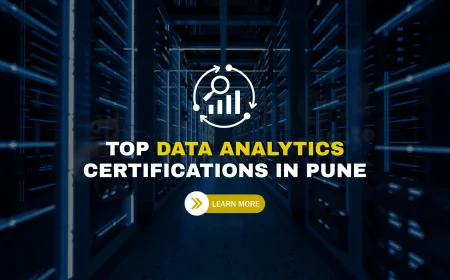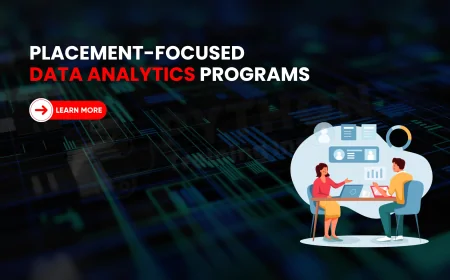Cloud Programming with Python Certification Pune | Python Cloud Programming Certification Course in Pune
Join Cloud Programming with Python Certification Course in Pune. Learn Python for AWS, Azure, GCP & automate real-world cloud operations.

Table of Contents
- Why Python for Cloud Programming?
- Course Introduction
- Curriculum & Key Modules
- Tools, Libraries & Frameworks
- Cloud Platforms Covered (AWS, Azure, GCP)
- Certification & Global Recognition
- Who Should Join This Course?
- Real-World Projects
- Duration, Fees & Batch Timings
- Top Institutes Offering Cloud Python in Pune
- FAQs
- Conclusion
Why Python for Cloud Programming?
Python has emerged as the preferred language for cloud automation, orchestration, data operations, and DevOps due to its simplicity, robust libraries, and strong ecosystem. Major cloud platforms like AWS, Google Cloud, and Azure offer SDKs and APIs that are Python-compatible.
- Automate infrastructure provisioning using Python scripts
- Build cloud-native applications using serverless Python functions
- Integrate Python with CI/CD pipelines, Terraform, Docker & Kubernetes
- Use Python to interact with S3, EC2, Lambda, Blob storage, Cloud Functions, etc.
Course Introduction
This certification course is designed to teach Python programming from a cloud developer’s perspective. By the end of this course, you will be able to write cloud-compatible code, automate cloud tasks, and prepare for job roles such as Python Cloud Engineer, DevOps Engineer, or Cloud Developer.
Curriculum & Key Modules
- Python Fundamentals Refresher
- Working with REST APIs using Python
- Cloud SDKs: Boto3 (AWS), Azure SDK, Google Cloud Client Libraries
- Infrastructure as Code (IaC) with Python & Terraform
- Serverless computing with AWS Lambda & Python
- File handling with cloud storage: S3, Blob, Buckets
- Authentication: OAuth2, IAM, Role-based access
- Cloud Logging & Monitoring Automation
- Deploying Python apps to AWS EC2, App Engine, Azure App Services
Tools, Libraries & Frameworks
- Boto3 for AWS
- Azure SDK for Python
- Google Cloud Client Libraries (GCP)
- Flask/FastAPI for microservices
- Docker, Kubernetes, Git, Jenkins
- Terraform, Ansible, YAML
Cloud Platforms Covered
This course provides in-depth hands-on exposure to the following platforms:
- AWS: EC2, Lambda, S3, IAM, CloudWatch, CloudFormation
- Microsoft Azure: Azure Functions, Storage Blob, VM, App Services
- Google Cloud: GCP Functions, Compute Engine, Cloud Storage, Cloud Run
Certification & Global Recognition
After successful completion, you’ll receive a professional certificate from a recognized Pune institute. You can also opt to prepare for global certifications such as:
- AWS Certified Developer – Associate
- Microsoft Azure Developer Associate
- Google Associate Cloud Engineer
Who Should Join This Course?
- Python Developers aiming for cloud roles
- DevOps engineers expanding to cloud automation
- System Administrators transitioning to DevOps/cloud
- Students or professionals seeking Python + Cloud combo certification
Real-World Projects
Each learner completes 3–5 real-world projects, including:
- Cloud backup automation script using Python and S3
- Deploy Flask app to AWS Lambda (serverless)
- Infrastructure setup with Terraform + Python
- Monitor VM health and logs with Python scripts
Course Duration, Fees & Timings
- Duration: 6–8 weeks (weekend or weekday batches)
- Fees: ₹12,000 to ₹22,000 (depending on mode and institute)
- Mode: Classroom + Online Live
- Batch Options: Weekend, Evening, Fast-Track
Top Institutes Offering Cloud Python Certification in Pune
WebAsha Technologies, Pune
- Comprehensive Curriculum: Combines Full‑Stack Python with Cloud (AWS, Azure, GCP), DevOps, serverless, IaC, containerization, and automation :contentReference[oaicite:1]{index=1}.
- Real-World Projects & Hands-On Labs: Live case studies with Boto3, Flask, Lambda, Azure Functions, CloudRun, plus DevOps tools integration :contentReference[oaicite:2]{index=2}.
- Expert Trainers: 12+ years of industry experience, currently working with MNCs, delivering high-impact training :contentReference[oaicite:3]{index=3}.
- Flexible Learning Modes: Online, offline, hybrid batches with weekend/evening options and rescheduling support :contentReference[oaicite:4]{index=4}.
- Career & Placement Support: Resume-building, mock interviews, placement portal, alumni referrals, boasts a 90%+ placement rate :contentReference[oaicite:5]{index=5}.
Additional Offerings & Certifications
- Cloud certification prep: AWS Cloud Practitioner, Developer Associate, Azure Fundamentals, Google Associate Cloud Engineer :contentReference[oaicite:6]{index=6}.
- Optional DevOps, Ansible, Docker, Kubernetes courses, RHCSA/Linux modules available :contentReference[oaicite:7]{index=7}.
Ideal for These Learners
- Python developers seeking cloud-skills upgrade
- Cloud/DevOps engineers needing scripting and automation expertise
- System admins transitioning into cloud automation roles
- Students or professionals eyeing Cloud Engineer, DevOps Engineer, SRE, or Python Cloud Developer positions
Course Fees & Charges
- Cloud‑Python / Full‑Stack Python + Cloud programs typically range from ₹30,000 to ₹1,50,000, based on course depth and combo options like AWS, Azure, DevOps, and certification prep :contentReference[oaicite:1]{index=1}.
- The base Python full‑stack plus cloud-plus-DevOps package falls in that range, covering extensive content and placement support :contentReference[oaicite:2]{index=2}.
- Certification exam fees and optional workshops (e.g., AWS associate, Azure Fundamentals) are usually extra and not included in the base fee :contentReference[oaicite:3]{index=3}.
- Flexible payment options: One-time payments, EMI, or installment plans—deposit upfront, with balance payable over the first 21 days :contentReference[oaicite:4]{index=4}.
What the Fees Cover
- Live instructor-led training (classroom or online).
- Access to LMS, recorded sessions, labs, projects.
- Hands-on real-world case studies and cloud-based assignments.
- Placement support: resume reviews, mock interviews, alumni referrals.
- Official WebAsha certificate & recommendation letter.
FAQs –
Q1: What is Cloud Programming with Python?
It refers to using Python to automate, develop, and manage cloud-based applications, infrastructure, and services across platforms like AWS, Azure, and GCP.
Q2: Do I need to know Python before taking this course?
A basic understanding is helpful, but most courses start with a refresher or beginner-friendly Python module.
Q3: Which cloud platforms are covered?
This course covers AWS, Microsoft Azure, and Google Cloud Platform (GCP) with practical Python integrations.
Q4: What jobs can I get after this certification?
Roles like Cloud Developer, Python Automation Engineer, Cloud DevOps Engineer, or Site Reliability Engineer (SRE).
Q5: Are weekend classes available?
Yes, most Pune institutes offer flexible weekend and evening classes for working professionals.
Q6: Will I get a certificate after completing the course?
Yes, you’ll receive a certificate of completion. Some institutes also help with global certifications.
Q7: What projects will I work on?
You’ll work on projects like deploying apps on AWS Lambda, automating backups to cloud storage, and writing Python scripts for VM health checks.
Q8: How long is the course?
6 to 8 weeks typically, with 3–4 hours per week of instruction and lab sessions.
Q9: Are there placement opportunities?
Yes, institutes like WebAsha and 3RI offer placement support, resume help, and mock interviews.
Q10: Do I need cloud experience to join?
No prior cloud experience is needed—this course starts from the basics and builds upward.
Q11: Can I take this course online?
Yes, live online sessions and recorded modules are available with most training providers.
Q12: Is this suitable for non-IT professionals?
Yes, if you’re willing to put in the effort. It’s best suited for beginners with logical aptitude and basic IT knowledge.
Q13: What tools are taught during the course?
You’ll learn Boto3, Azure SDK, Google SDK, Terraform, Flask, Jenkins, Docker, and Kubernetes with Python.
Q14: What is the course fee range?
Fees vary between ₹12,000 to ₹22,000 depending on the institute and whether it's online or offline.
Q15: Will I learn serverless concepts?
Yes, you'll work on serverless platforms like AWS Lambda, Azure Functions, and Google Cloud Functions using Python.
Q16: Do I need a high-end laptop?
No, any laptop with 8GB RAM and a stable internet connection is sufficient for labs and projects.
Q17: Is this course good for DevOps aspirants?
Absolutely. It adds cloud automation, scripting, and deployment skills crucial for DevOps roles.
Q18: Are Python frameworks like Flask taught?
Yes, lightweight frameworks like Flask or FastAPI are introduced for microservices deployment.
Q19: What certification do I get?
You’ll receive a professional course completion certificate and optionally prepare for AWS/GCP/Azure associate-level exams.
Q20: How can I enroll?
You can enroll online via institute websites or contact their admissions team to schedule a demo or counseling session.
Conclusion
The Cloud Programming with Python Certification Course in Pune is a gateway to modern IT roles that demand automation, DevOps skills, and cloud-native development. With the rising demand for Python-driven cloud solutions, mastering this combination makes you a highly sought-after tech professional. Whether you want to boost your resume or transition into a cloud career, this course is your perfect launchpad.
What's Your Reaction?
 Like
0
Like
0
 Dislike
0
Dislike
0
 Love
0
Love
0
 Funny
0
Funny
0
 Angry
0
Angry
0
 Sad
0
Sad
0
 Wow
0
Wow
0














